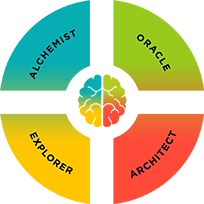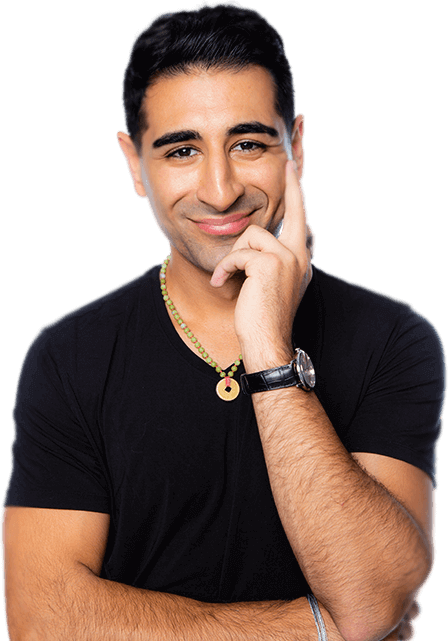Total Reading Time: 4 minutes.
Why would you ever want to be an expert?
Pride. Money. Fame. Interest. Ego. Passion. Lifestyle. Career.
All commendable answers. All things that are worth working and fighting for.
But here’s another motivation for developing expertise in something: Freedom. Yup, this is another way to create complete freedom (and fulfillment) in your life.
Here’s how: all expertise is relative. Meaning, if you know even slightly more than I do about copywriting, you’re an expert (in my eyes).
Becoming an expert means you create demand for your raw skills, knowledge, and intellectual property. And when you’re in demand, your options for supporting yourself and giving value back to the world are limitless.
Books, speaking, products, services, software, you name it. You can potentially start one any of my top 15 solopreneur businesses, develop expertise as you go, and be a happy human.
Let’s address something first: this “become an expert overnight” topic gets thrown around a lot. In fact, before writing this post I found that some of the top ranking articles on developing expertise were nothing more than the typical over-promise, under-deliver, hyperbolic headline click bait we’ve all become addicted to.
I searched for any hidden gems of advice throughout various posts, but found nothing. Well, I found one. But it wasn’t the writer’s word, it was a quote by someone else:
There aren’t shortcuts. Merely direct paths. Most people don’t take them, because they frighten us. Things that look like shortcuts are usually detours disguised as less work.
– Seth Godin
Just like the path to becoming an expert, that answer is direct, honest, and impactful.
In an effort to to provide something new to the topic, I’ll highlight some of what has helped me achieve relative expertise in a few areas. You’ll also see what the path to freedom through becoming an expert looks like.
5 Steps to Becoming an Expert and Achieving Mastery
1. Study
Do you remember that one class you just loved? Or that time you were fascinated by a new topic (e.g. a documentary, a place, a time, politics, architecture, a desire, etc.).?
There was a deep hunger, wasn’t there? You must become infatuated with your new skill.
To become an expert you must develop an insatiable appetite for knowledge.
– (Tweet this)
If it isn’t in direct alignment and doesn’t excite you, forget about it. Take money out of the equation and ask yourself what you’d do then (related: what if money were no object?). Start there.
2. Practice
Don’t let this piece intimidate you. By day two you could already be developing some relevant expertise, especially if you love the topic.
You simply need to get into the habit of consuming, and then producing. Meaning, study and learn all you can — then get really good at getting what you’ve learned out of your head.
Put your learnings into action immediately, and practice every chance you get. Practice for free, practice alone, practice in your sleep (lucid dreaming anyone?). You’ll be going back and forth between step one and two for the rest of your life. A true expert never stops practicing their craft.
3. Emulate
Have your friends and network started to ask you questions? Are people seeking more of your time, and asking you to coffee?
Good, you’re on the right track. Start teaching and don’t ask for much in return. Just give as much value as possible to everyone around you, and practice that.
Now it’s time to up your game even more. At this point you should already have a few role models in the area you’d like to become an expert in.
Study these people. Think like these people. Live like these people. Learn their life stories and understand what drives them. This is important, because in the next step it all comes together.
A learning resource: Brendon Burchard, author of The Millionaire Messenger and The Charge, is a top peak performance trainer and teaches people how to create a business around their expertise and passions. He gives away great free content and puts together an event called Expert Academy.
4. Elevate
Of all the experts in your field, which one do you most identify with the most and/or want to be in 5-10 years? Decide.
Now, your job is to get as close as possible to this person. Your must either:
a) Work for/with them
b) Become a student of theirs
c) Build a relationship and friendship
Depending on who they are and how they structure their life/business, you’ll have to decide what the best route is. Is your expert role model Bill Clinton? Good, now get to work for him.
You may think I’m joking, but I’m not. At this point, you are a talented student of your craft. You are hungry and you can prove to this person that you’re worth their time.
So either find a way to work for them (for free if necessary), get them to become your mentor, or build a friendly relationship with them.
During the next phase of your life, your job is to absorb as much as possible and be the best student they’ve ever seen, regardless of how your relationship is structured. In this world, they are the relative expert.
5. Mastery
The goal is not to become your teacher’s teacher. The goal is to learn from the very best, because that is the most direct path to becoming an expert.
Eventually, you will become an absolute expert. You will achieve a true level of mastery.
Will there be someone that knows more than you? Always. But this isn’t about climbing a meaningless ladder, it’s about growing into the best version of yourself (related: how to grow).
In the end, you’ll get an opportunity to share your unique value with the world. And yes, you’ll have the freedom and fulfillment you deserve too.
– –
This blog, and this post, is my version of developing and practicing my expertise. Personally, I’m working on step 4.
Where are you at? What have been your biggest obstacles to becoming an expert?






